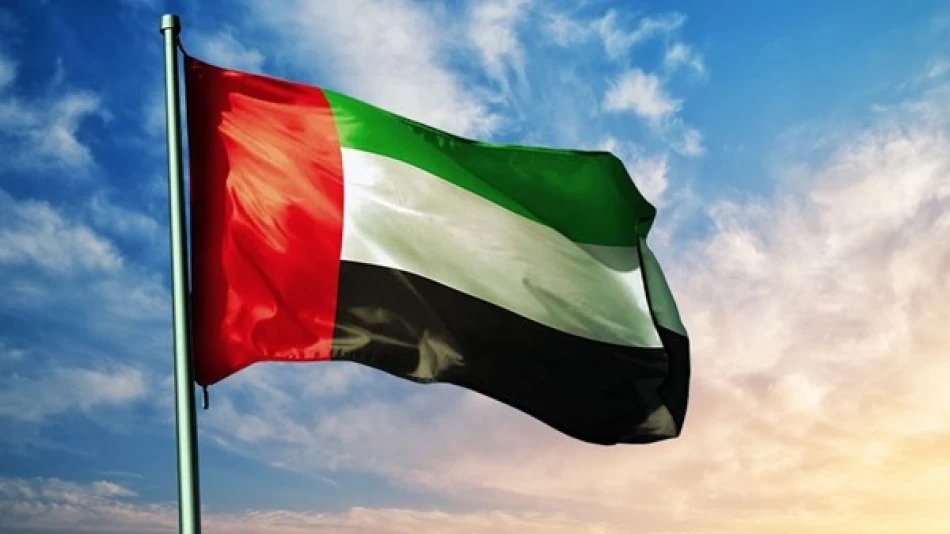
UAE Shines as Inspiring Model for Empowering Women's Leadership
UAE Emerges as Global Pioneer in Corporate Gender Balance Through Groundbreaking Private Sector Initiative
The United Arab Emirates has launched the world's first private sector commitment targeting UN Sustainable Development Goal 5, requiring companies to achieve at least 30% female representation in senior leadership positions by 2025-2028. This ambitious initiative positions the UAE as a regional leader in gender equality while potentially reshaping how nations approach corporate diversity mandates globally.
Strategic Framework Driving Measurable Change
The UAE's success in gender empowerment stems from a comprehensive ecosystem involving key institutions like the UAE Gender Balance Council and the Dubai Women Establishment. These organizations have developed systematic approaches to women's leadership development, partnering with prestigious international institutions to prepare Emirati women for senior roles across government and private sectors.
Mozah Mohammed Al Ghuwais Al Suwaidi, Secretary-General of the UAE Gender Balance Council, emphasized that the council continues intensive efforts to increase women's participation in the private sector through strategies aimed at creating balanced and inclusive work environments. This aligns with the UAE's broader vision of positioning women as essential partners in sustainable development.
World-First Private Sector Commitment Shows Tangible Results
Voluntary Corporate Participation Exceeds Expectations
The "Accelerating SDG 5 Commitment" initiative has attracted numerous national and international companies operating across diverse sectors in the UAE. These organizations have voluntarily committed to raising women's participation in senior and middle management positions to a minimum of 30% - with first-wave companies targeting 2025 and second-wave participants aiming for 2028.
This voluntary approach contrasts sharply with quota systems implemented elsewhere. Unlike Norway's mandatory 40% female board representation or California's recent board diversity requirements, the UAE model relies on corporate commitment rather than legal mandates, potentially offering a more sustainable path to gender balance.
Measurable Progress in Executive Representation
Early results demonstrate tangible progress in women's representation within the private sector and executive positions. Al Suwaidi noted that diversity and balanced representation in leadership positions enhance innovation and governance while establishing a more inclusive, competitive, and sustainable economy.
International Recognition Validates UAE's Approach
The UAE's Gender Balance Strategy 2026 aims to close gender gaps across all sectors while improving the country's ranking in global competitiveness reports related to gender balance. These efforts have yielded impressive international recognition.
The UAE achieved first place regionally in the World Economic Forum's 2025 "Gender Gap Report" and ranked 13th globally and first regionally in the UN Development Programme's 2025 Gender Equality Index. These rankings place the UAE ahead of many developed economies and demonstrate the effectiveness of its systematic approach.
Comprehensive Leadership Development Programs
Building Global-Ready Female Leaders
Naima Ahli, Executive Director of the Dubai Women Establishment, highlighted that empowering Emirati women's leadership represents a core strategic focus. The organization continues developing and implementing advanced training programs designed to cultivate and refine women's leadership skills across various sectors.
Key programs include "Women on Global Boards," "SheLeads" for future female leaders, and "Empowerment Plus" for heads of women's committees in government departments and semi-government sectors. These initiatives, implemented in partnership with international universities and institutions with extensive experience in executive and leadership education, prepare participants for global leadership roles.
Market and Economic Implications
The UAE's approach offers significant advantages for investors and multinational corporations. Companies operating in the UAE benefit from access to a more diverse talent pool while demonstrating commitment to ESG (Environmental, Social, and Governance) principles increasingly demanded by global investors.
This initiative also positions the UAE as an attractive destination for international businesses seeking to improve their diversity metrics without navigating complex regulatory requirements. The voluntary nature of commitments allows companies to align with global best practices while maintaining operational flexibility.
Setting a New Global Standard
The UAE's model presents a compelling alternative to the regulatory approaches adopted by European countries or the market-driven initiatives seen in the United States. By combining voluntary corporate commitments with comprehensive government support and international partnerships, the UAE has created a replicable framework that other nations may adopt.
The success of this initiative could influence how emerging economies approach gender equality in corporate leadership, potentially accelerating global progress toward SDG 5 while demonstrating that rapid advancement is possible through strategic, systematic approaches rather than lengthy regulatory processes.
Most Viewed News

 Layla Al Mansoori
Layla Al Mansoori






